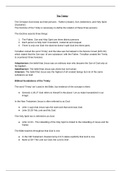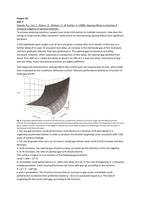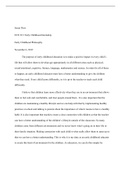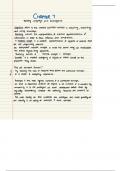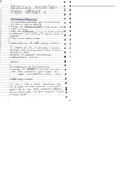Lecture notes
The Trinity
- Institution
- WJEC
Notes for the WJEC Eduqas Christianity course for year 1. These are in depth notes that have enough points to get full marks. This is for the new specification, and so are hard to find elsewhere.
[Show more]
